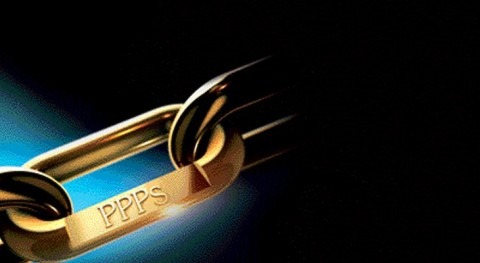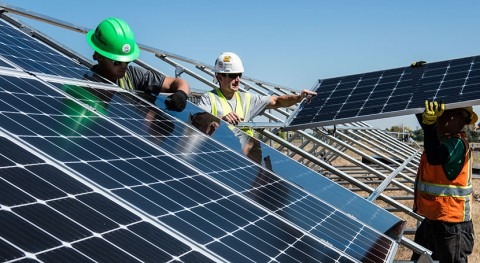With the alarming prediction of global water scarcity in near future many organizations like the United Nations (UN), national governments and multinational companies are putting increased pressure on industries that use water resources heavily, including the global mining industry.
The key driver was set in place in 2015 as the United Nations adopted the 2030 Agenda for Sustainable Development in hope to steer global efforts around social, economic and environmental change. What was ironic though, a year after the initiation of the SGDs, the hottest year globally was recorded. The word ‘water’ was now shot up the agenda in the mining industry and not the usual vernacular of ‘profits’, ‘deferred charges’, ‘high grade’ and ‘Igneous rocks’ meetings were normally accustomed too. Investors at that stage did want to know about their returns, but rather how the mines are managing water resources. It was clear that the SDGs had given investors something to think of as globally everyone had to readjust, reuse and rethink to be more ‘sustainable’ by 2030 and address the global water crisis. But with change of thinking, strategy and implementation comes opportunity and one country that is seizing on this is South Africa.
The Southern African nation remains one of the most geologically and mineral rich regions in the world and it was shown in the 2019 figures. Despite covid-19 it had weathered the storm of the endemic and pandemic as the market for 2020 increased from R840 billion to R1,280 billion. The country boasts more than half of the world reserves of manganese, chromium, and platinum group metals in the world. To add to the accolades, it has around 40% of the gold, vanadium and vermiculite reserves globally. Despite the fact the country has a fantastic resource base, the government of South Africa, development the National Development (NDP) and of its mandate was to align the mining industries to the SDGs of the United Nations. And by virtue of this alignment mining companies could now form stronger relationship with Government, civil society, communities and other stakeholders. Those that fail to engage meaningfully with the SDGs stand to put their operations at risk in the long-term. Numerous opportunities exist for the mining industry in South Africa with one receiving special attention, the sustainable management of water resources and the use of new technologies in our current tech savvy Fourth Industrial Revolution (4IR).
Drivers of market opportunities
The South Africa mining sector accounts for around 3% of the total water consumption in South Africa and is largely dependent on sufficient water availability for the extraction and processing of various minerals. Without sustainable water management, the mining industry consumes and pollutes large amounts of water, which has a negative impact on freshwater resources and the access of surrounding communities to clean drinking water and in sufficient quantities. The mining industry is beginning to recognize that an effective water management strategy is central. Not only to optimize mining activities and to ensure the health and safety of miners, but also from an ecological point of view.
An important part of effective water management is the use of future-oriented technologies that allow environmentally friendly drainage of mines. There is a need in South Africa for technologies that can purify the water polluted by mining to a given standard of reuse. Purified wastewater is still largely discharged into water bodies (ecological end-user). However, treated mine wastewater is also made available for other end users, e.g., for raw material processing in the mining sector itself, agricultural irrigation, or even as drinking water for potable water supply. Technologies for the recovery and / or further treatment of by-products from wastewater treatment are also required. Water is also indispensable in the processing of metals (e.g., hydrometallurgy). Water contaminated from these processes should be treated and reused within the plant as far as possible.
Prevailing water scarcity, political and legal requirements, and social pressure to extract natural resources sustainably are the driving factors of increased market opportunities in the active mining industry going forward. In July of 2021 through the Southern African-German Chamber of Commerce and Industry (NPC) (AHK Southern Africa), in partnership with the German Water Partnership opportunities are created for German companies to enter the market. Companies like Boreal Light GmbH, Wilo Pumps SA (Pty) Ltd, PPU Umwelttechnik GmbH, Microdyn-Nadir GmbH, Hydac Systems & Service GmbH, VEGA Grieshaber KG, EnviroChemie GmbH, Cerafiltec Germany GmbH and J&C Bachmann GmbH all will be presented to introduce their new technologies in aid to improve the water management of the mining industry in South Africa.
There are also market opportunities in the public sector: the National Department of Human Settlements, Water and Sanitation (DHWS) is responsible for combating acidification of groundwater and rivers caused by closed mines where individuals responsible for environmental pollution can no longer be traced. This requires between 6 and 13 billion rand (equivalent to 850,54200 million U.S. dollars). Active and passive solutions for the removal of sulphate, heavy metals, cyanides, demineralization, and wastewater minimization, as well as sludge treatment, value creation, water / wastewater / sludge transport, monitoring and automation are, particularly in demand.
The solution for the mining industry in South Africa can be summarized as 1) Reuse 2) Reduce 3) Rethink 4) Innovate as its clear, conventional mining does not have a long-life span in the future of an sustainable future for both industry, natural and human life.







